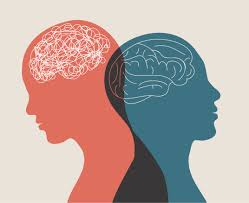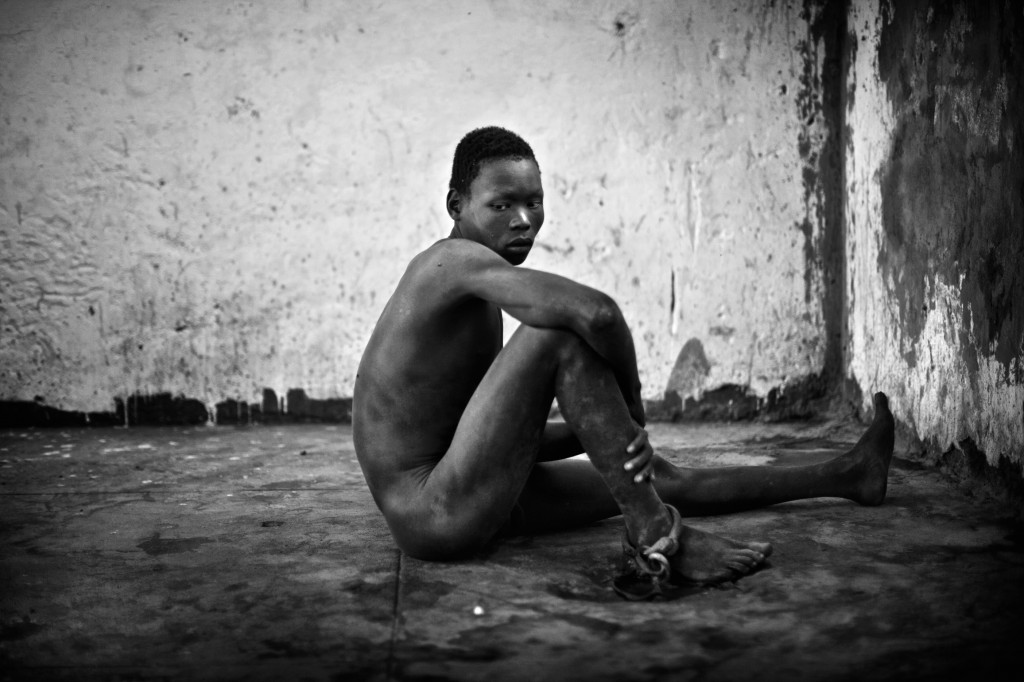The Unspoken Burden: What Africans in the Diaspora Don’t Tell Home About the “Greener Pastures”
.png)
For many Africans, migrating abroad symbolizes success, opportunity, and financial breakthrough, often fueled by curated social media feeds and the pressure to send remittances.
This article will peel back the glamorous facade, exploring the harsh realities, hidden struggles, and profound sacrifices that many Africans in the diaspora face but rarely communicate back home.
We'll delve into issues like exploitation (labor, financial, and even sexual), pervasive discrimination, severe mental health challenges (like isolation, anxiety, and depression from cultural shock and pressure), complex immigration hurdles, and the immense burden of remittances that can lead to burnout and debt.
Beyond Remittances: The Hidden Burdens
Beyond the often-discussed financial remittances, Africans living abroad carry a multitude of common, yet largely unspoken, emotional, social, and economic burdens. The initial dream of "greener pastures" often collides with a stark reality that newcomers are ill-prepared for.
This creates a hidden layer of struggle that rarely makes it into conversations with loved ones back home, contributing to a one-sided narrative of success.
SOURCES: Google
Emotional burdens frequently include profound isolation and loneliness. Many migrants leave behind extensive family networks and tight-knit communities, arriving in societies that are often more individualistic.
This can lead to deep feelings of solitude, especially when navigating a new culture, language, or social norms. The pressure to maintain a facade of doing well for family back home only intensifies these feelings, preventing open communication about their struggles.
Social burdens manifest in various forms, including the struggle with cultural shock and adapting to vastly different societal expectations. Simple daily interactions can become sources of stress and confusion.
Furthermore, migrants often face challenges in building new social circles, sometimes encountering insular local communities or struggling to connect with existing diaspora networks. This can lead to a sense of not fully belonging anywhere.
Economically, reality often diverges sharply from expectations. While remittances flow, many in the diaspora grapple with underemployment or precarious work conditions. Degrees and professional experience from African countries are frequently not recognized abroad, forcing skilled individuals into low-wage jobs far below their qualifications.
Studies have highlighted systemic barriers to occupational mobility for migrants from non-OECD countries and culturally diverse backgrounds, with a significant percentage of skilled migrants working jobs beneath their skill level, as detailed by the Migration Policy Institute.
Additionally, complex immigration hurdles and legal uncertainties create immense stress. Navigating visa renewals, residency permits, or citizenship applications can be a prolonged, expensive, and emotionally draining process.
The fear of deportation or legal complications hangs over many, impacting their stability and long-term planning. This constant state of anxiety is a profound, yet often unshared, burden that colors their daily lives.
The pervasive issue of discrimination, both overt and subtle, adds another layer of emotional and social strain. Africans in the diaspora frequently encounter racism in workplaces, housing, and public spaces, impacting their sense of dignity and belonging.
Image, Struggle, and the Hidden Mental Health Crisis
The intense pressure to maintain an image of success, coupled with actual struggles like unemployment, racism, or exploitation, significantly contributes to a devastating hidden mental health crisis within diaspora communities.
SOURCES: Eat My News
This crisis is often exacerbated by cultural stigmas around mental illness and the expectation to portray only positive experiences to families in Africa.
Isolation is a major trigger for mental health issues. Many African migrants experience a profound loss of their traditional support systems—extended family, communal networks, and religious communities—upon moving abroad. This absence can lead to intense feelings of loneliness, anxiety, and depression. The concept of acculturative stress, a negative psychological experience directly resulting from managing the ongoing demands of a bicultural environment, further explains the variability in mental health among migrant groups, as explored by PubMed Central.
The pressure to send remittances, a defining characteristic of the diaspora experience, is a relentless source of stress. Migrants often take on multiple jobs, work long hours, and defer their own needs to meet financial demands from home, leading to severe financial strain and burnout.
This immense responsibility, coupled with their own living expenses, can create overwhelming anxiety and chronic stress, directly impacting their mental well-being. Global reports underscore the vast sums of remittances sent to Sub-Saharan Africa, reaching $49 billion in 2021 according to the World Bank, illustrating the significant financial flow and pressure on individuals.
Experiences of racism and discrimination are particularly damaging to mental health. Constant encounters with prejudice, whether in job applications, housing searches, or daily interactions, can lead to feelings of frustration, anger, and hopelessness.
These experiences can result in trauma, contributing to conditions like PTSD, anxiety disorders, and depression. Research consistently indicates that individuals who experience discrimination are at a higher risk for mental health issues, as noted by the American Psychological Association.
Furthermore, labor exploitation is an alarming reality for many, particularly undocumented migrants or those in vulnerable situations. This can range from unpaid wages and excessive working hours to unsafe conditions and, in extreme cases, forced labor or human trafficking.
Reports from human rights organizations detail instances of migrant workers facing unsafe working conditions, racist intimidation, threats, and even sexual harassment, as highlighted by the Human Rights Research Center.
The inability to speak out due to fear of deportation or further exploitation creates a profound sense of helplessness and contributes significantly to psychological distress. Financial exploitation by unscrupulous individuals, including scams targeting remittances or immigration processes, also adds to this burden.
The pervasive need to present a successful image back home, often fueled by social media, creates an immense emotional burden. Migrants feel compelled to hide their struggles, financial difficulties, or emotional distress from family, fearing disappointment or perceived failure.
This lack of authentic communication prevents them from seeking help and perpetuates their internal suffering, intensifying feelings of isolation and exacerbating their mental health challenges. This facade of prosperity masks deep personal anguish.
Diaspora Connect
Stay Connected to Home
From Lagos to London, Accra to Atlanta - We Cover It All.
Building Bridges: Support and Understanding
Navigating the complexities and challenges of life in the diaspora requires robust support systems, both formal and informal, which are often desperately needed. Crucially, communities back home also need a better understanding of these realities to foster empathy and provide appropriate support.
SOURCE: Google
Formal support systems abroad, though often underutilized due to lack of awareness or cultural barriers, include mental health services, legal aid organizations, and immigrant support centers.
Many Western countries have publicly funded mental health services, but accessing them can be challenging due to language barriers, cultural insensitivity of practitioners, or fear of stigmatization.
Legal aid groups assist with immigration hurdles and exploitation cases, while community centers offer integration programs and networking opportunities. Culturally adapted interventions have shown to improve mental health outcomes for various African diaspora populations, as discussed inDiaspora Digital News.
Informal support systems within the diaspora are often the primary lifeline for many. Research on African international graduate students, for instance, highlights how informal communal networks, such as peer groups, spiritual communities, and ethnic associations, significantly mitigate psychological distress and facilitate adaptation, as explored in ResearchGate.
These networks provide crucial emotional support, practical advice, and a sense of belonging that mitigates isolation. They often serve as informal welfare systems, assisting with job searches, housing, and emergency financial needs. Strengthening these grassroots organizations is vital.
For communities back home, a fundamental shift in perception is required. This involves challenging the romanticized narrative of "greener pastures" and recognizing the immense sacrifices involved.
Education campaigns, perhaps driven by returning migrants or diaspora organizations, could shed light on the realities of life abroad, moving beyond the narrative of endless opportunities. Encouraging open dialogue about struggles, rather than just successes, is paramount.
Creating safe spaces for communication both abroad and at home can bridge this gap. Family members in Africa can be educated to ask migrants not just about money, but about their well-being, challenges, and emotional state, fostering an environment where honesty is encouraged.
This shifts the focus from purely financial expectations to holistic well-being. Studies also indicate that maintaining relational ties with extended family in the homeland is both a source of support and strain for African immigrants, as found in research published byMDPI.
Furthermore, fostering mutual support initiatives between diaspora communities and home communities can be beneficial. This might include programs where returning migrants share their experiences transparently, or where home communities establish specific points of contact for diaspora members to communicate challenges.
Policies that facilitate easier, temporary returns for migrants could also help alleviate stress and maintain family ties. Organizations like theInternational Organization for Migration (IOM) actively partner with diasporas to leverage their contributions for development and provide various support mechanisms.
Ultimately, addressing the unspoken burden requires a collective effort. It demands greater empathy, open communication, and the establishment of robust, culturally sensitive support structures that acknowledge the full spectrum of experiences faced by Africans in the diaspora.
You may also like...
When Sacred Calendars Align: What a Rare Religious Overlap Can Teach Us

As Lent, Ramadan, and the Lunar calendar converge in February 2026, this short piece explores religious tolerance, commu...
Arsenal Under Fire: Arteta Defiantly Rejects 'Bottlers' Label Amid Title Race Nerves!

Mikel Arteta vehemently denies accusations of Arsenal being "bottlers" following a stumble against Wolves, which handed ...
Sensational Transfer Buzz: Casemiro Linked with Messi or Ronaldo Reunion Post-Man Utd Exit!

The latest transfer window sees major shifts as Manchester United's Casemiro draws interest from Inter Miami and Al Nass...
WBD Deal Heats Up: Netflix Co-CEO Fights for Takeover Amid DOJ Approval Claims!

Netflix co-CEO Ted Sarandos is vigorously advocating for the company's $83 billion acquisition of Warner Bros. Discovery...
KPop Demon Hunters' Stars and Songwriters Celebrate Lunar New Year Success!

Brooks Brothers and Gold House celebrated Lunar New Year with a celebrity-filled dinner in Beverly Hills, featuring rema...
Life-Saving Breakthrough: New US-Backed HIV Injection to Reach Thousands in Zimbabwe

The United States is backing a new twice-yearly HIV prevention injection, lenacapavir (LEN), for 271,000 people in Zimba...
OpenAI's Moral Crossroads: Nearly Tipped Off Police About School Shooter Threat Months Ago
ChatGPT-maker OpenAI disclosed it had identified Jesse Van Rootselaar's account for violent activities last year, prior ...
MTN Nigeria's Market Soars: Stock Hits Record High Post $6.2B Deal

MTN Nigeria's shares surged to a record high following MTN Group's $6.2 billion acquisition of IHS Towers. This strategi...






